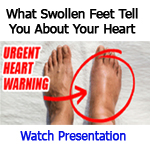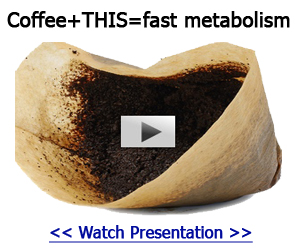
Study Finds Non-Drug Meditation Treatment Beats Depression
Tuesday, December 02, 2008 by: Sherry Baker, Health Sciences Editor
Tags: meditation, health news, Natural News
- Solar storm sparks concern as supervolcano nears eruption: Could sun's electromagnetic pulse trigger cataclysm?
- Mysterious hexagonal UFO sighting over California sparks questions amid government secrecy
- “Cancer-Free with Food”: A culinary revolution in the fight against disease
- Gum bacteria invade heart, trigger dangerous heart rhythm problems
- Trump’s Gulf tour sparks Iran nuclear deal breakthrough amid regional shifts
- The hidden dangers of oversleeping: How too much rest harms cognition, fuels depression, and shortens life
- WHO's PANDEMIC AGREEMENT just a ploy to CONTROL every aspect of any SCAMDEMIC they declare at any time and indefinitely
- Zero-waste bean cooking: Repurposing pinto bean broth in soups or bread
- ANOTHER Clinton associate, who vowed to expose elite pedophile ring, found dead
- RFK Jr. announces simplified federal dietary guidelines promoting whole foods, slams past industry influence
- Forever chemicals” invade Australian water supply: Investigation yields torrent of carcinogens, signifying vast regulatory failure
- CDC's dangerous gamble: Pregnant women and their unborn babies at put at unreasonable RISK from SIX toxic vaccines
- EXPENSIVE CANCER THERAPY promoted in New Zealand while ignoring the very CAUSE of their shockingly high rate of lymphoma cases
- L.A. edges closer to historic $30 minimum wage for tourism workers amid backlash
- James Comey's posts cryptic ’86 47′ message and gaslights the public after being confronted with passive aggressive death threat to President Trump
- Saw Palmetto: The mighty berry for men's health and beyond
- Florida bans toxic fluoride in tap water, protecting citizens from forced medication
- Trump administration probes publisher of influential COVID origins paper over alleged Fauci influence
- WAR ON COGNITION: The Coordinated Assault on Your Brain and How to Defend Yourself Against Every Attack
- Canada's COVID cover-up: Health officials swore secrecy to protect Trudeau from vaccine scandal
- Singapore's draconian vaccine mandate: Citizens face jail time for refusing FORCED medical procedures that do HARM
- Big Pharma's Dirty Secret: How Prescription Drugs Are Starving Your Body of Essential Nutrients
- Gene-edited pork sneaks onto your plate: FDA quietly approves CRISPR pigs amid health and ethical concerns
- RED ALERT: Nuclear War Between India and Pakistan Could Trigger Global Catastrophe… full RISK ANALYSIS
- JESUS NEVER SPOKE ENGLISH: Historical facts on why the Bible you’re probably reading has been altered, redacted or hidden from much of its original meaning
- Hidden poison in your medicine and supplements: How phthalates in capsules are silently attacking your heart, thyroid, and hormones
- BBC accused of “political censorship” for shelving Gaza documentary amid mounting pressure
- Brushing with poison: Study finds toxic heavy metals in 90% of toothpaste brands, including those for children
- Australia’s vaccine cover-up: 35 died same day as COVID shot, but authorities ignored them
- Why All Government Officials and Big Tech CEOs Who Engage in Systematic Viewpoint Censorship Must Be ARRESTED, Prosecuted, and Sentenced to Life in Prison
- Silent catastrophe: COVID-19 vaccines linked to plummeting fertility rates, Czech data reveals
- Survival basics: 5 Dangerous locations to avoid during an EMP attack
- X-class solar flare sparks worldwide disruptions, with more storms expected as sunspot turns toward Earth
- The truth about Benzyl Alcohol in beauty products
- DOJ targets controversial “Proximal Origin” study in push for scientific transparency
- Landmark study of 85 million reveals shocking surge in heart attacks, strokes, and sudden death following the notorious COVID-19 jab
- The Miraculous Healing Power of DMSO: Nature's Forgotten Cure for Cancer, Pain, and Regeneration
- Biblical truth: God will carry out a “cosmic reset” of Earth and destroy all human civilization with a series of extinction-level cosmic impacts known as The Seven Trumpets, Seven Bowls and Seven Seals
- URGENT REPORT: The China Import Embargo - What to Stockpile Now Before America Runs Out
- The Ultimate Survival Guide to Baking Soda: A Miraculous, Multi-Purpose Remedy for Health, Home, and Emergency Preparedness
- A call to preserve America’s future: “Defeating Big Government Socialism” by Newt Gingrich
- Stunning Visualization of the Seven Trumpets in the Book of Revelation
- Big Pharma launches “Vaccine Integrity Project” to combat Secretary Kennedy and keep 94 shots going into kids with mandates and liability protections
- World Economic Forum's current downfall exposes legacy of totalitarianism, financial fraud, and crimes against humanity
- Widespread social and economic unrest: Steve Quayle issues urgent financial warning of imminent asset collapse in new interview with Mike Adams
- Aerosolized bioweapons? Strange “diploid biomasses” falling out of the sky in Florida captured under the microscope
- Biden regime deployed over 600 grants to fund disinformation agenda, to silence the truth and stifle debate
- The Miraculous Healing Power of Green Tea: Unlocking the Potent Antioxidants That Big Pharma Doesn't Want You to Know About
- The unspoken truth about chemotherapy: These “treatments” create toxic time bombs in your body called CELL-KILLING PARTICLES
- U.S. Government's Bio-War Against America: 15 Historical Medical Horrors Inflicted on the American People by the Government Itself
- A win for free speech: State Department SHUTS DOWN controversial disinformation office
- French rioting demonstrates how gun control laws are failing law-abiding citizens
- Head of L.A. Port warns of incoming plunge in U.S. supply chain, empty shelves and inventory depletion in 5-7 weeks
- Supreme Court to review challenge to Illinois’ semi-automatic gun ban
- Red Cross issues warning to stop blood plasma donations from vaccinated people
- Scientists confirm: GENIUS brain function can be spontaneously unleashed in humans without any apparent cause
- EPA advisor admits the agency is funneling billions to climate groups ahead of Trump’s return to White House
- HYSSOP: What research reveals about the health benefits of this ancient holy herb
- Two containers with completed ballots fall out of truck in Florida
- Newly released JFK files reveal Pentagon's role in creating Lyme disease and covid in the same lab
- Mike Adams releases country western hit single: Goin’ Back in Time is Comin’ Home
- Global leaders unite to clamp down on “misinformation” with UN-backed Cascais Declaration
- BREAKING: 2025 NDAA authorizes mandatory military draft of WOMEN across America… as Pentagon pursues global NUCLEAR war with both Russia and China at the same time
- I Want My Bailout Money – new song released by Mike Adams
- Michael Yon warns of a ZIONIST TAKEOVER in Trump’s second administration
- Ozempic and Wegovy weight loss drugs are injectable LIZARD VENOM PEPTIDES that may unleash a devastating wave of organ failure… side effects align with symptoms of SNAKE BITES
- BOMBSHELL: DNA testing kits are a SCAM to develop ethnic-specific bioweapons
- The Health Ranger releases “Vaccine Zombie” song and music video, using AI-animated zombies for the music video
- These 13 countries just signed an agreement to engineer a global FAMINE by destroying food supply
- Israeli soldiers accused of even more torture and abuse in the West Bank
- RFK Jr. clears key hurdle: Sen. Susan Collins backs controversial HHS nominee, signaling a new era for health policy
- Sermon 30: How Jesus reveals Caesar’s FAKE CURRENCY and FALSE AUTHORITY
The research, just published in the Journal of Consulting and Clinical Psychology, found that the group-based psychological treatment called Mindfulness Based Cognitive Therapy (MBCT) was as good or better as treatment with anti-depressants like Prozac in preventing a relapse of serious depression -- and the non-drug therapy was more effective in enhancing quality of life. What's more, the study concluded MBCT is cost-effective in helping people with a history of depression stay well for the long term.
The research team, which included British investigators from the Mood Disorders Center at the University of Exeter and the Center for Economics of Mental Health (CEMH) at the Institute of Psychiatry at King's College in London, looked at 123 people who had suffered repeated episodes of clinical depression. In a randomized control trial , the research subjects were assigned to one of two groups. Half continued their on-going drug treatment with anti-depressants and the rest participated in an MBCT course and were also given the option of stopping their anti-depressant medications.
MBCT focuses on targeting negative thinking and helps people who are at risk for recurring depression to stop their depressed moods from spiraling out of control into a full episode of depression. During the eight-week trial, groups of between eight and fifteen people attended meetings with a therapist who taught them a range of meditation exercises that they could continue to practice on their own once the course ended. The MBCT exercises were primarily based on Buddhist meditation techniques and helped the study participants learn to focus on the present, rather than dwelling on the past or worrying about future tasks.
Although the meditation exercises worked in a different way for each person, many reported more control over their negative thoughts and depressed feelings. Over the 15 months after the trial ended , about 47% of the group following the MBCT course experienced a relapse -- but those who continued normal treatment with anti-depressant drugs experienced a much higher, 60 percent relapse rate. In addition, the group practicing the mindfulness meditation techniques learned in the MBCT program reported a far better quality of life, more overall enjoyment and better physical well-being.
In a statement to the media, Professor Willem Kuyken of the University of Exeter , who headed the research, explained that people treated with anti-depressants are highly vulnerable to relapse when they stop their prescription drug therapy. "MBCT takes a different approach – it teaches people skills for life. What we have shown is that when people work at it, these skills for life help keep people well. Our results suggest MBCT may be a viable alternative for some of the 3.5 million people in the UK known to be suffering from this debilitating condition. People who suffer depression have long asked for psychological approaches to help them recover in the long-term and MBCT is a very promising approach. I think we have the basis for offering patients and GPs an alternative to long-term anti-depressant medication. We are planning to conduct a larger trial to put these results to the test and to examine how MBCT works," Kuvken said.
About the author
Sherry Baker is a widely published writer whose work has appeared in Newsweek, Health, the Atlanta Journal and Constitution, Yoga Journal, Optometry, Atlanta, Arthritis Today, Natural Healing Newsletter, OMNI, UCLA’s "Healthy Years" newsletter, Mount Sinai School of Medicine’s "Focus on Health Aging" newsletter, the Cleveland Clinic’s "Men’s Health Advisor" newsletter and many others.Meditation at FETCH.news
Get independent news alerts on natural cures, food lab tests, cannabis medicine, science, robotics, drones, privacy and more.
Take Action: Support Natural News by linking to this article from your website
Permalink to this article:
Embed article link: (copy HTML code below):
Reprinting this article:
Non-commercial use OK, cite NaturalNews.com with clickable link.
Follow Natural News on Facebook, Twitter, Google Plus, and Pinterest
Science News & Studies
Medicine News and Information
Food News & Studies
Health News & Studies
Herbs News & Information
Pollution News & Studies
Cancer News & Studies
Climate News & Studies
Survival News & Information
Gear News & Information
News covering technology, stocks, hackers, and more



"Big Tech and mainstream media are constantly trying to silence the independent voices that dare to bring you the truth about toxic food ingredients, dangerous medications and the failed, fraudulent science of the profit-driven medical establishment.
Email is one of the best ways to make sure you stay informed, without the censorship of the tech giants (Google, Apple, Facebook, Twitter, YouTube, etc.). Stay informed and you'll even likely learn information that may help save your own life."
–The Health Ranger, Mike Adams












































